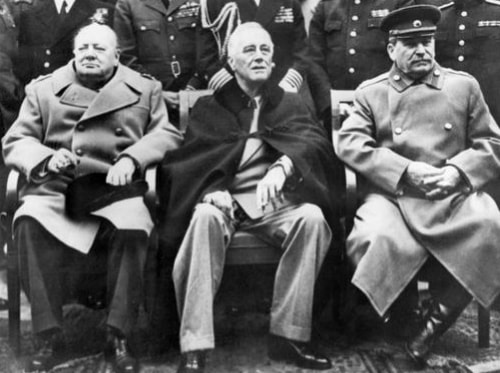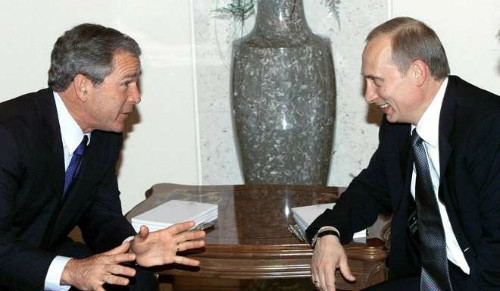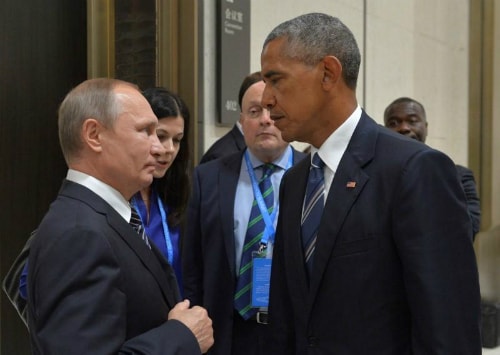Unexpected incidents, important results of US-Russia summits
The meetings of US-Russian leaders are remembered for important results, unexpected remarks and even incidents that have gone down in history.
|
From left: British Prime Minister Winston Churchill, US President Franklin Roosevelt and Soviet leader Josef Stalin at Yalta in 1945. Photo: AFP. |
Trump and Putin held a summit in Finland today. Meetings between the world's two most powerful leaders are always events that attract the attention of the whole world.
At the Yalta Conference in Crimea in 1945, US President Franklin Roosevelt met with British Prime Minister Winston Churchill and Soviet leader Josef Stalin to plan for the post-World War II future. This was Roosevelt's last major appearance before his death from illness two months later.
They agreed that if Stalin entered the war against Japan, he could regain Russian territory that Japan had controlled decades earlier. The conference was initially considered a success but later seen as giving Moscow too much leverage.
In 1961, John F. Kennedy and Nikita Khrushchev met in Vienna, Austria, amid considerable tension. The Soviet leader demanded the unification of Germany on terms unfavorable to the United States. Two months later, the Berlin Wall was built.
The 1972 meeting of Leonid Brezhnev and Richard Nixon in Moscow produced agreements to limit ballistic missiles and slow the nuclear arms race.
Ronald Reagan and Mikhail Gorbachev nearly reached a major arms reduction agreement at a 1986 summit in Reykjavik, Iceland. Although the effort ultimately failed, the meeting is considered to have paved the way for the Intermediate-Range Nuclear Forces Treaty, which the United States and the Soviet Union signed in 1987, which eliminated long-range missiles on both sides.
|
George W. Bush (left) and Putin in Slovenia in 2001. Photo: AFP. |
In 2001, George W. Bush and Putin got off to a very warm start when they first met in June 2001 in Ljubljana, Slovenia. "I could feel his soul," Bush said, a remark that surprised many of his conservative aides.
However, the two countries later fell into tension. Putin accused the Bush administration of provoking a new arms race. US officials said Moscow was backsliding on political freedom and using its abundant energy resources to bully its neighbors.
While other summits are noted for their outcomes, the 2012 meeting between Barack Obama and Dmitry Medvedev at the G20 summit in Seoul is remembered for Obama's failure to know a nearby microphone was turned on while he spoke with the Russian leader. Obama told Medvedev he would be "more flexible" on missile defense issues if he were re-elected. Medvedev responded that he would "pass this information on to Vladimir," meaning Putin, who was then prime minister.
|
Russian President Putin and US President Obama at the G20 Summit in China in 2016. Photo: Reuters. |
At the end of his term, Obama met Putin at the 2016 G20 Summit in Hangzhou, China, in a chilly atmosphere. Obama led the effort to push Russia out of the G8 group of industrial powers over the Ukraine crisis.
Putin had another American counterpart at the G20 in Hamburg, Germany, in 2017. During the election campaign, Trump expressed admiration for Putin and promised to improve relations with Russia. Putin said Trump believed him when he denied allegations of Russian interference in the US election.
The upcoming meeting between Trump and Putin comes amid tensions between the two countries over the crisis in Syria, Ukraine, a new trade war between the US and China, the US and the EU, cyber attacks and accusations of Russian interference in the US election from the White House. The host country's President, Sauli Niinisto, expressed hope that the meeting would help ease tensions. "Even a small step towards easing tensions would be beneficial for everyone," he said.




